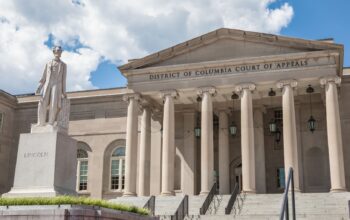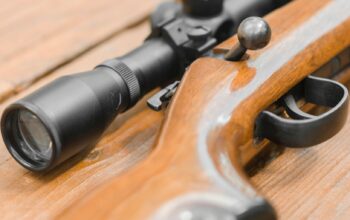Weary of President Donald Trump’s attacks on civil rights, immigrants and diversity and still reeling from the disaster that unfolded when the National Association of Black Journalists allowed him to speak at their 2024 convention, the NAACP has drawn a line. For the first time in its 116-year history, the civil rights organization will not invite a sitting president to its national convention July 9-13.
“This has nothing to do with political party,” NAACP President Derrick Johnson announced during a Monday press conference. “Our mission is to advance civil rights, and the current president has made clear that his mission is to eliminate civil rights.”
The NAACP’s decision comes as Trump continues to push policies that have harmed Black Americans and marginalized communities. In April, the organization sued the Department of Education after it began withholding federal funds from schools that refused to dismantle their diversity, equity, and inclusion (DEI) programs.
The NAACP argued the department was blocking lawful efforts to ensure equal educational opportunity for Black students.
“There is a rich history of both Republicans and Democrats attending our convention,” according to a statement from the organization.
That history includes Democrat Harry Truman, who in 1947 became the first sitting president to attend the NAACP’s national gathering. Despite fierce disagreements over civil rights policies, the organization also extended invitations to Republican presidents.
President Ronald Reagan, criticized for using racially charged language such as “welfare queen,” accepted the group’s invitation in 1981 and condemned white supremacist groups in his speech. President George W. Bush spoke in 2006 after facing outrage over his handling of Hurricane Katrina, which devastated Black communities in New Orleans and along the Gulf Coast.
But NAACP officials said Trump’s conduct and rhetoric go far beyond past disagreements. His appearance at the NABJ convention last year only confirmed what many feared. On stage, Trump revived false birther-style attacks by questioning Vice President Kamala Harris’s racial identity: “Is she Indian or is she Black?”
He made sweeping, unsubstantiated claims that undocumented immigrants are being allowed to vote and are taking “Black jobs,” calling them criminals from “mental institutions” and “prisons.” When asked about the police killing of Sonya Massey in Illinois, Trump stumbled through a vague response before promoting blanket immunity for law enforcement and ignoring the demand for police accountability.
Throughout the NABJ appearance, Trump bulldozed over any pushback. Attempts by moderators to correct falsehoods were steamrolled. The appearance confirmed the concerns of journalists who protested his invitation — that Trump would exploit the platform to spread racist vitriol and lies.
Still, Trump and his backers did not take the NAACP’s decision quietly. In a statement packed with false claims, White House spokesman Harrison Fields lashed out.
“The NAACP isn’t advancing anything but hate and division, while the president is focused on uniting our country, improving our economy, securing our borders, and establishing peace across the globe,” Fields said. “This is the same vision for America that a record number of Black Americans supported in the resounding reelection of President Trump.”
Critics immediately pointed out Trump’s long history of attacking Black Americans — from housing discrimination lawsuits to targeting Black political opponents — and noted that Trump remains one of the most openly divisive presidents in American history.
“The NAACP has always stood for justice,” Johnson said. “And when that mission is threatened, we will not hand over our platform to the person trying to destroy it.”
Source: Published without changes from Washington Informer Newspaper



